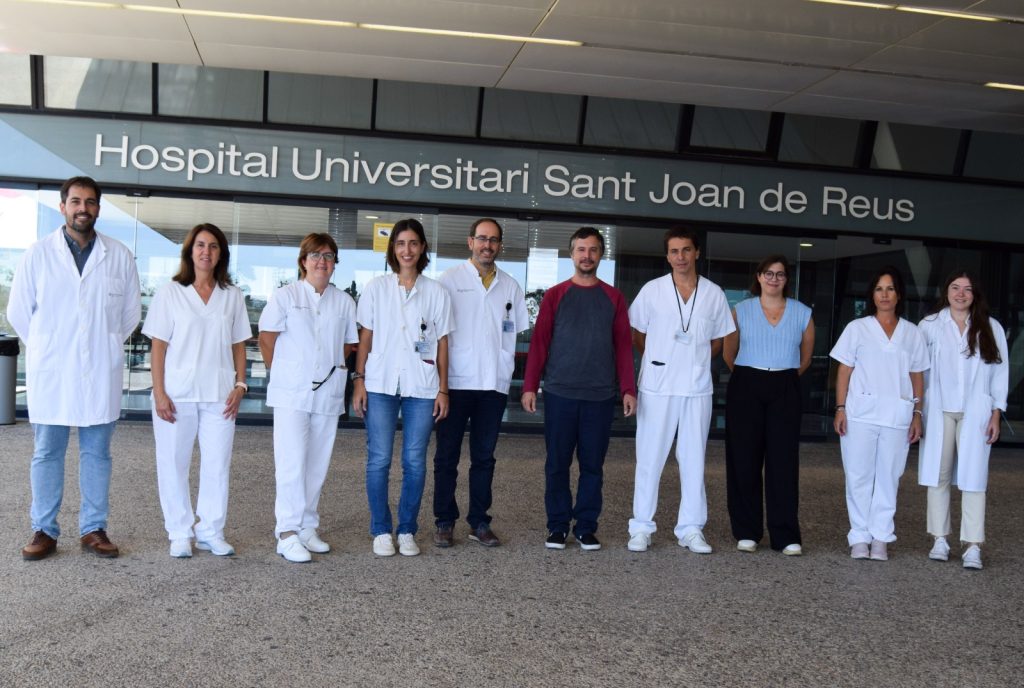An investigation led from the IISPV has concluded, involving 1,800 mothers and their sons and daughters, of pre-school age

A study led by the Institut d’Investigació Sanitària Pere Virgili (IISPV), in Tarragona, has made it possible to observe for the first time that eating too many ultra-processed foods (such as suffocated drinks or potatoes) during pregnancy affects the children’s linguistic and verbal capabilities. It is the result of a pioneering research in this field around the world, which sheds light on this key aspect of childhood development and learning and further demonstrates the role of diet in people’s health.
In order to carry out this research, which is an initiative of the IISPV NeuroÈpia Research Group (with the collaboration of ISGlobal, a centre promoted by the Fundació “la Caixa”, and other institutions, such as the Universitat Rovira i Virgili and the Centro de Investigación Biomédica en Red), a representative sample of the population of Spain consisting of 1,800 mothers and their respective sons and daughters has been studied for four years (from 2004 to 2008). Children have been tracked from the time of birth and up to 5 years (pre-school age), when language skills such as verbal reasoning and agility or numerical memory are developed.
Jordi Júlvez, who is responsible for this research group, explains with some examples what these concepts mean and what implications they have for children’s health: “some examples of linguistic skills are learning how to relate verbal concepts that are similar by completing sentences to the infant of the type a cat and a dog are… The answer is mammals. We are also talking about verbal fluidity, which could be expressed by being able to name the child or child, for 20 seconds, names of different fruits”. And he adds: “In any society, country… Some people eat healthy food and some do not. That is why we opted to do a population study, with mothers and children with more and less healthy eating habits, to reflect this diversity. Thanks to this approach, the results and conclusions can be applied to any child in this age range”.
Social class and economy, other key aspects
To assess the development of these children, the internationally recognized McCarthy scale has been used. One of the most important categories of mental fitness that includes their tests is that of linguistic skills, which, along with nonverbal or visual and perceptual abilities (thanks to which we learn how to manipulate materials or elements; how to coordinate our body; and how to develop nonverbal reasoning) determine the degree of overall cognition that the child achieves. Hence, the diet’s affection for children in this area of their development is key.
Júlia Puig, a nutritionist and public health professional of the IsGlobal research group, explains the criteria set for assessing whether the intake of ultra-processed foods in the diet of mothers who have been part of the study was elevated: “When they were accepted into the study, they were first asked to answer a food consumption questionnaire. To assess whether their diet contained a high load of ultra-processed food, we divided them into three equal groups: one in which mothers with a low intake level of ultra-processed, one with a medium level and one high. We saw that the children of mothers who were part of the high level earned a low score to verbal skills in the McCarthy test. It is important to know that the profile of a mother in this group was that of a woman with primary, low social class and not normally following a Mediterranean diet. Taking these aspects into account offers a more global view of this reality”.
Bibliography Reference: Puig-Vallverdú J, Romaguera D, Fernández-Barrés S, Gignac F, Ibarluzea J, Santa-Maria L, Llop S, Gonzalez S, Vioque J, Riaño-Galán I, Fernández-Tardón G, Pinar A, Turner MC, Arija V, Salas-Savadó J, Vrijheid M, Julvez J. The association between maternal ultra-processed food consumption during pregnancy and child neuropsychological development: A population-based birth cohort study. Clin Nutr. 2022 Oct;41(10):2275-2283. doi: 10.1016/j.clnu.2022.08.005. Epub 2022 Aug 19. PMID: 36087519.
Listen to the interview (48′ 38″- 49′ 37″) with Jordi Júlvez, to “El món a RAC1” (October 14, 2022).